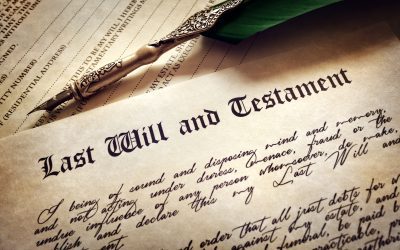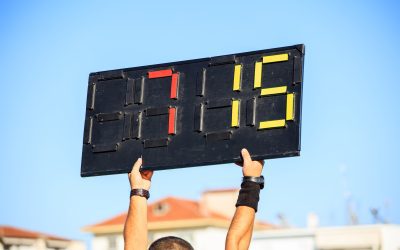Finding the right lawyer in New Orleans (or anywhere) can seem intimidating. Typically, clients begin to search for an attorney AFTER they need one, either after they have been sued after they are in a contract dispute, or after an injury.
Fortunately, the internet has made it a lot easier to find and evaluate attorneys.
The top three things to do when evaluating and choosing any lawyer:
1. Research
2. Research
3. Research
Research is the most important thing to do when choosing a lawyer.
Lawyers offer a service. Follow the same steps you would when making any significant purchase (home or car for instance) or business decision.
Identify Your Legal Needs to Narrow the Search
The first step in finding the right lawyer in New Orleans is to clarify the type of lawyer you need. There are several types of legal practice areas, including lawyers that specialize in medical malpractice, maritime law, or immigration law. We have a great article here that has more information on the different types of lawyers.
When you have figured out what type of lawyer fits your case, focus on finding the best specialist you can for your case. Medical Malpractice attorneys will not have the technical expertise required for a complicated Maritime case. Find the legal specialist that understands your claim.
Create a Shortlist of Lawyers in New Orleans
A great way to start is by asking your friends and relatives for lawyers that they have used in the past when they had a similar issue.
Another source for referrals is from your business contacts in New Orleans and professionals in your network.
It is also important to broaden your search to find lawyers in New Orleans by using professional directories (like this one) to find options that are near you AND possess the knowledge that you need for your case. There are quite a few different legal directories out there as well as the Louisiana State Bar Association with searchable databases of lawyers.
Imagine a funnel. The wide end catches the most water and “funnels” the water down into the shortlist. Cast a wide net and make the most educated choice you can make when choosing an attorney in New Orleans.
Research Your New Orleans Lawyer's Credentials
How long has your lawyer been practicing law in New Orleans? Do they have a track record for success in the area? Have they had a lot of cases in the legal practice area that applies to your needs?
Use search engines (like Google or Bing) to research the New Orleans law firm and its lawyers. Do they have good reviews? Do they have positive local news coverage?
In addition to general searches, use the Louisiana State Bar Association website to research potential lawyers. The Louisiana State Bar website lets you search by several fields, including first name, last name, and city.
Focus on What's Important When Choosing
Matching Area of Legal Expertise. If you have an injury claim, don't hire an attorney that specializes in patent law. Focus your search on the specialization you need and find the best lawyer in New Orleans in that legal practice area.
The Legal Team. Lawyers in smaller firms in New Orleans might work by themselves and outsource some of the caseloads to partner firms. Lawyers in larger national firms with an office in New Orleans may have an entire team of associate lawyers, paralegals, and support staff working on the same case. It is important to find out who is working on your case and who specifically is responsible for the results.
Remember, if you spend a lot of time researching a specific lawyer because of their expertise, that work is wasted if they aren't actually working on your case.
Communication. An attorney's job is to communicate. They present your claim to judges and juries. They explain the case and what the outcome should be for you.
Additionally, legal terminology is complex. Your lawyer needs to be able to communicate complex concepts to you. They need to explain their legal options and be open to questions. Most importantly, YOU need to feel comfortable speaking with your lawyer.
Costs. Lawyers are expensive. In your initial consultation, the lawyer should be able to explain the legal fees and expenses for your case. In cases with contingency fees (where the lawyer takes a percentage), the percentage amount can vary depending on the case.
Professionalism. Is your lawyer professional? Are they professional in their communication with you? Look around their office during your initial consultation. Is it clean and well-kept? Does it look like it is run like a professional operation? If they don't look professional, odds are they are not professional. Would you expect your food to be clean in a restaurant with a dirty kitchen?
Local Experience in New Orleans. Local experience is critical. The importance of local experience is the reason why most legal directories (or any online directory) have some sort of geo-location search function (i.e., giving results near you) built into the website. Your lawyer needs to be familiar with New Orleans and the laws of Louisiana AND New Orleans. If they work in New Orleans frequently, they have developed relationships at the courthouse, with local expert witnesses, and even lawyers on the other side. Lawyers with experience in New Orleans are up-to-date on local laws and the nuances of the legal system.
If you live in New Orleans, choosing a local New Orleans lawyer makes face-to-face meetings much easier. If you don't have a car and live in Metairie, don't choose a lawyer in Slidell.
Interview Several Different Lawyers in New Orleans
Most lawyers offer a free initial consultation for new clients. Take advantage of it.
An in-person meeting with a potential lawyer can help you evaluate the “fit” of expertise, personality, legal team, and professionalism.
During the meeting, the lawyer will typically give you their “take” on your case and their general approach in these types of cases. Taking the time to have multiple interviews with several different attorneys will give you an outline of the different strategies. This helps you make the choice that makes the most sense to you.
Check References
Ask for client references (and take them with a grain of salt).
References are like resumes. A job-seeker will avoid putting negative things on their resumes. Similarly, when people provide references, it is unlikely that they will give you contact information for unhappy clients.
Call all client references and ask them questions about the case process, their experience, and their satisfaction with the overall level of service.
As you narrow the list of New Orleans lawyers as it goes down your “funnel,” dig deeper into the lawyer's background. There are online sources where lawyers rank other lawyers (Martindale Hubbell is an example). Also, use the Louisiana State Bar Association website to see if the attorney you are considering has any complaints or sanctions from past behavior.
How is the fit?
After all of the research, interviews, and background checks, you should now have an idea of which lawyer is the best “fit” for your personality and your case.
If you get to the end of the process and still haven't found the right lawyer in New Orleans, expand your “net” and start the process over again. Choosing the right lawyer can be the difference between winning and losing. Take your time and choose wisely.
Good luck!




